Table of Contents
Easton’s Views on Political System and Equilibrium Analysis:
David Easton is the first major political scientist who has developed a systematic framework based on systems analysis to study political phenomena. He has selected the political system as the basic unit of analysis and concentrated on the intra-system behaviour of various systems as principal areas of research and investigation. To quote S. P. Verma, “His approach in using the systems analysis is constructivist, in the sense that he has depended more on the analytic system approach rather than on the membership systems approach”.
Easton’s concept of political life was that of ‘a system of behaviour embedded in an environment to the influences of which the political system itself is exposed and in turn, reacts’. This meant that beyond the political system there were other systems or environments: physical, biological, social, psychological, etc. which distinguished the political system from the other systems.
In the words of Easton, “I have been exploring the utility of the systems as the major unit, focussing on political life as a system of behaviour operating within and responding to its social environment as it makes binding allocation of values”.
David Easton on Political System:
He has defined a political system as “a set of inter-actions in any society through which binding or authoritative allocations are made and implemented”. He has further said, “The idea of the political system proves to be an appropriate and indeed unavoidable starting point in research. Although there is often uncertainty about the unity of political science as a discipline, most students of political science do feel quite instinctively research into political aspects of life does differ from enquiry into any other, sufficiently so to constitute a separate intellectual enterprise”.
For Easton, all political systems were both open and adaptive systems. He concentrated on the study of the nature of exchanges and transactions that occurred between a political system and its environment. For him, the political system was constantly receiving from other systems a stream of events and influences that shaped the conditions under which its members acted. Easton emphasized the adaptive character of the political system. To quote S. P. Verma, “Exposed as such, the political system must have the capacity to respond to disturbances and thereby to adapt itself to the conditions under which it has to function……….In the political system’s internal organisation………there is an extraordinary capacity to adjust itself to the conditions under which it functions”. Easton believed that political systems accumulate large repertories of mechanisms, by which they try to cope with their environments and thereby regulate their own behaviour, transform their internal structure and even re-model their basic goals.
Easton’s Views on Equilibrium Analysis:
Easton disapproved of the idea of equilibrium analysis as employed by sociologists because it neglected the variable capacity of the systems to cope with environmental influences. According to him, the equilibrium analysis had two major shortcomings-
(1) It attaches far too great importance to equilibrium, which it considers as indistinguishable from stability and treats as the only goal by the members of the system trying to cope with change or disturbance.
(2) Secondly, this method of analysis does not attach importance to the processes or, the problems formulated by the processors.
The system may have some other goals than that of reaching one or any other point of equilibrium. In the words of Easton, “A system need not react to disturbances just by oscillating in the neighbourhood of a prior point of equilibrium or by shifting to a new one. It may cope with the disturbances by seeking to change its environment so that the exchange between its environment and itself are no longer stressful; it may seek to insulate itself against any further influences from the environment, or the members of the systems may even fundamentally transform their own relationships and modify their own goals and practices so as to improve their chances of handling the inputs from the environment. In these and other ways, a system has the capacity for creative and constructive regulation of disturbances”.
According to Easton, a political scientist must concentrate on the processing and converting of a variety of influences that flow from the environment into the political system and on the ways in which systems respond to these influences- what Easton named “the life process of the political system”, those fundamental functions without which no system could endure- together with the typical notes of response through which systems manage to sustain them.” According to Easton, “The analysis of these processes and of the nature and conditions of the responses is a central problem of political theory”.
Despite the criticism of the ‘equilibrium’ approach, Easton has given the concept of systematic persistence the central place of his analysis. Mainly, he concerned himself with the source of stress and modes of regulating stress. For Easton, these were the essential variables without which a political system could not exist.
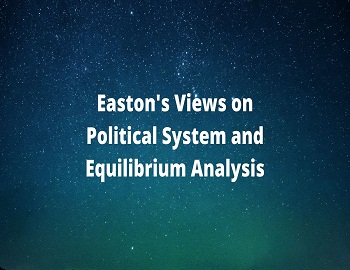


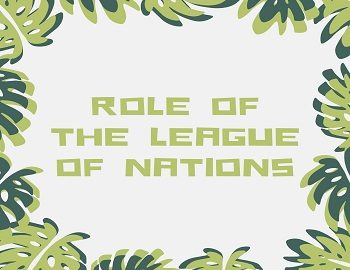
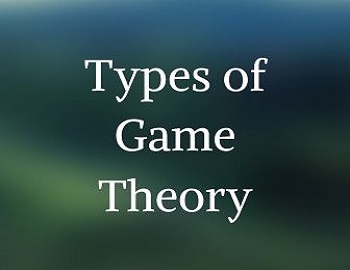


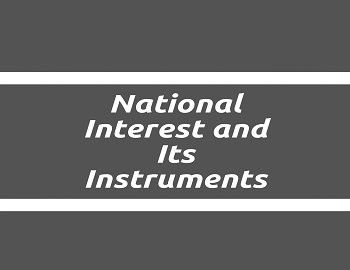
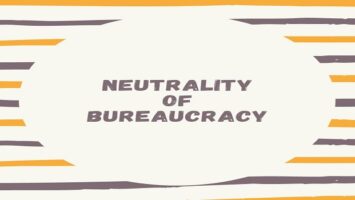
Comments (No)